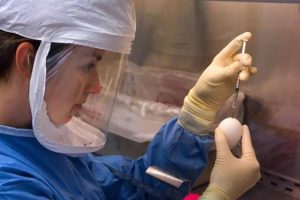Experts analyze the physical activity and health of children prior to COVID-19

The COVID-19 pandemic has exacerbated shortfalls in children's physical activity around the world, according to a new study – and Scotland is not exempt.
The report by the Active Healthy Kids Global Alliance (AHKGA) compared 57 countries from six continents to assess global levels and trends in child and adolescent physical activity, resulting in the Global Matrix 4.0 comparison of grades.
The study gives the world an overall 'D' grade, representing success with fewer than half of children. Scotland's rankings include B- – success with well over half of children – in Community and Environment, and Sport and Physical Activity, and C-, denoting success with about half of children, for Active Transportation and Government and Policy in Physical Activity.
The report finds that, in common with many higher-income countries, children in Scotland face inequalities in low physical activity, high levels of screen time, high obesity – as early as Primary 1 – and poor diet. In addition, while policies on activity and diet are of a high quality, they have not been fully implemented and there is a lack of specific policy on screen time.
The report recommends that physical activity should be promoted early in life and often, while identifying many ways to incorporate purposeful and incidental daily physical activity, such as active play, and to limit screen time. To achieve this, national monitoring would require further improvement, to inform decision-making in policy and practice.
It also recommends that more information should be collected on children under the age of five, particularly as the early years form a sensitive period for development and forming healthy habits.
The University of Strathclyde is the Scottish lead for the study, while the other Scottish institutions involved are the MRC/CSO Social and Public Health Science Unit at the University of Glasgow, and Universities of Aberdeen and Stirling and Robert Gordon University
The full effect of the pandemic on the physical activity and health of children and adolescents in Scotland is not yet clear, but there are concerning signs of increased screen time and increased childhood obesity.
The findings for Scotland have been published in the Journal of Exercise Science & Fitness.
The Global Matrix 4.0 represents the largest compilation of information to date on levels of physical activity of children and adolescents, and the data show a failing grade across the world. Scotland is no exception, and things did not improve in the decade prior to COVID-19."
John Reilly, Professor, School of Psychological Sciences & Health, University of Strathclyde
Dr Farid Bardid, a Lecturer in Strathclyde's School of Education, said: "This is particularly concerning as these low levels of physical activity and high levels of screen time may have worsened following the COVID-19 pandemic."
The study shows some clear disparities between the most and least deprived areas of Scotland. Just over half, 53%, of children in the most deprived areas were found not to be engaging in sport, compared with 18% in the least deprived, while just 4% in the most deprived areas, compared with 19% in the least deprived, had been on outdoor excursions in the previous 12 months. Half in the most deprived areas perceived their communities as safe, compared with 72% in the least deprived.
The study concludes: "Despite a decade of favourable policy, (the) physical activity and health of children and youth has not improved, and marked socioeconomic inequalities persist in Scotland.
"There is a clear need for greater monitoring of physical activity and health, and improved policy implementation and evaluation, particularly as many indicators and related inequalities may have worsened following the COVID-19 pandemic."
Data were incomplete in some categories, including diet, obesity and physical fitness.
The overall AHKGA report finds that events other than COVID-19 reduced child and adolescent physical activity even further, including climate change (in around a third of countries), national economic crises (in half of the countries), and war or internal conflict in eight of the 57 countries.
The specific impact of the pandemic on Scotland will be analyzed in the next Active Healthy Kids Scotland Report Card.
University of Strathclyde
Bardid, F., et al. (2022) Results from Scotland's 2021 report card on physical activity and health for children and youth: Grades, secular trends, and socio-economic inequalities. Journal of Exercise Science & Fitness. doi.org/10.1016/j.jesf.2022.07.002.
Posted in: Child Health News
Tags: Adolescents, Childhood Obesity, Children, Climate Change, covid-19, Diet, Education, Exercise, Obesity, OCT, Pandemic, Physical Activity, Public Health, Research
Source: Read Full Article